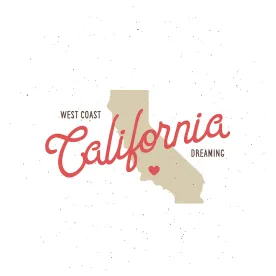On April 30, 2020, the Supreme Court of California issued its decision in Nationwide Biweekly Administration, Inc. v. Superior Court of Alameda County, a case that received a fair amount of attention in 2019 when it seemed possible the court might allow claims under California Business & Professions Code Sections 17200 et seq. and 17500 et seq. (commonly called the unfair competition law (UCL)) to be tried by jury. Based on the statutory similarities that the plaintiffs have attempted to draw to the California Private Attorneys General Act of 2004 (PAGA) claims, this decision may put to rest any controversy surrounding whether there is a right to jury for PAGA claims. The court instead confirmed established precedent, though it also offered two important clarifications. First, the court soundly rejected the lower court’s decision to defer to a Supreme Court of the United States decision on a question of construing the California Constitution. Second, the court responded to the specific question of whether the introduction of civil penalties as a remedy in UCL claims should have changed the jury-right analysis.
Though there is a concurring opinion by Justice Kruger, the court was unanimous in holding that “in causes of action under the UCL seeking injunctive relief and civil penalties, the gist of the actions is equitable, and there is no right to a jury trial under California law either as a statutory or constitutional matter.” In a thorough 74-page decision, Chief Justice Tani Cantil-Sakauye herself steps through the legislative history of the UCL, proper interpretation of the California Constitution’s right to jury trial provision, and how to assess a party’s right to jury trial on claims that seek both legal and equitable remedies based on the “gist” of the action.
Background
The original dispute in Nationwide Biweekly Administration was over the eponymous company’s advertisements to debtors offering to restructure loans. Four county district attorneys joined in suing Nationwide Biweekly Administration, seeking, on behalf of the State of California, an injunction to stop the advertisements, restitution of all money Nationwide Biweekly Administration received from its California customers, and statutory civil penalties of $2,500 per violation.
In its answer to the complaint, Nationwide Biweekly Administration demanded a jury trial. California filed a motion to strike the jury trial demand, arguing that UCL claims are not entitled to trial by jury. The trial court granted the motion and Nationwide Biweekly Administration petitioned the California Court of Appeal to review. The appeals court’s decision broke with 45 years of precedent to find that Nationwide Biweekly Administration was entitled to a jury trial on the UCL claims. The appeals court narrowed its holding, though, to require the jury to determine liability. If a jury found Nationwide Biweekly Administration liable for violations of these statutes, the judge would then determine the amount of civil penalties without the jury.
The appeals court relied heavily on Tull v. United States (1987) 481 U.S. 412, a case that interprets the U.S. Constitution’s Seventh Amendment right to jury trial. The appeals court found that the “gist” of the state’s UCL claims were legal, not equitable, because they sought civil penalties on top of the injunction and restitution remedies. The appeals court issued the writ and vacated the trial court’s order to strike Nationwide Biweekly Administration’s jury demand.
Nationwide Biweekly Administration petitioned for review by the California supreme court.
The California Supreme Court Decision
The Supreme Court of California reversed the appeals court’s opinion. First, the court reviewed the body of state law cases holding that UCL causes of action are equitable in nature. As the supreme court noted, damages cannot be recovered under either statute, nor are there criminal provisions in either statute. The court found no legislative history or other justification for finding that seeking civil penalties, in addition to injunctive relief and the equitable remedy of restitution, would change that result. In fact, the court found that the civil penalties remedy serves the same equitable purpose that restitution does.
The state supreme court then turned to what appears to be its main reason for granting review—to explain why the lower court erred in relying on the federal Tull decision. Put simply, Tull should not have entered the appeals court’s consideration, the supreme court indicated. Tull rested exclusively on the right to jury embodied in the Seventh Amendment to the U.S. Constitution, which only applies to civil trials in federal court, the supreme court said, adding that the right to a jury in state civil trials is governed by each state’s own constitutional jury trial provision. The California Constitution jury trial provision “preserves the right to jury trial in civil actions comparable to those legal causes of action in which the right to jury trial existed at the time of the first Constitution’s adoption in 1850 and does not apply to causes of action that are equitable in nature.” [Emphasis in original]
The supreme court stated that California cases about UCL claims—statutory causes of action authorizing both injunctive relief and civil penalties—require a “qualitative, holistic analysis” in assessing whether a claim involves multiple issues, whether those issues are legal or equitable, and whether those issues can be considered independently from each other. Federal courts, on the other hand, “generally have not applied the type of holistic gist of the action standard that California decisions have utilized in applying California’s constitutional jury trial provision.”
The court found that the specific remedies sought do not determine whether a cause of action is primarily legal or equitable. A claim under the UCL is a single cause of action that happens to seek nonseverable features of relief—both equitable and legal. The court said that the Tull decision “somewhat artificially severed the cause of action for civil penalties into two parts.” The court agreed with Justice Scalia’s dissent in Tull that this exercise created an unknown novel type of cause of action severing liability (to be tried by a jury) and penalties (to be determined by the court).
Civil penalties are not severable from the equitable nature of the action, the court found. They are noncompensable in nature, requiring no showing of actual harm, and are not based on the amount of losses incurred by the targets of unfair practices or misleading advertising, according to the court. Further, the court found that civil penalties are to be utilized for the enforcement of the statutes in question. UCL claims are equitable, and neither party is entitled to a jury trial over any portion of those claims, the court concluded.
Key Takeaways
Ultimately, the court’s decision in Nationwide Biweekly Administration reaffirms that the large body of prior decisions finding that UCL claims are equitable in nature, and that civil penalties as a remedy serve equitable functions were decided correctly. The court somewhat scolded the appeals court for being “the first appellate decision to reach a contrary conclusion.” Based on that statement, at least with regard to UCL claims, employers can consider this question settled.
California employers may be familiar with UCL claims, since they are tacked on to nearly every wage and hour lawsuit to effectively expand the statute of limitations to four years. As a result of the California high court’s ruling in Nationwide Biweekly Administration, a plaintiff seeking that fourth year of back wages as restitution under the UCL will need to resolve that claim before the bench, separately from a jury trial over the wage claims.
The real value of this decision, though, is by analogy. As the Supreme Court of the United States further cements the enforceability of employment arbitration agreements containing class action waivers, and more businesses include those waivers for all new hires, plaintiffs are increasingly relying on the California Private Attorneys General Act of 2004 (PAGA) to pursue alleged wage and hour violations on behalf of large groups of employees in order to try to escape arbitration. This decision may have ramifications for PAGA cases, which also involve civil penalties.
Although the California supreme court limited its decision to UCL claims, plaintiffs have often conceded UCL claims are analogous to PAGA when it was to their benefit. The supreme court concluded that UCL claims “are equitable either when brought by a private party seeking only an injunction, restitution, or other equitable relief or when brought by the Attorney General, a district attorney, or other governmental official seeking not only injunctive relief and restitution but also civil penalties.” It is irrelevant whether a private party is seeking traditional equitable relief such as an injunction or whether a government official is enforcing the equitable purpose of the statute through penalties. Penalties do not change the nature of the action from equitable to legal.
Like the UCL, remedies under PAGA are equitable. The court’s Nationwide Biweekly Administration decision is consistent with Z.B. v. Superior Court of San Diego County (2019), in which the California supreme court found PAGA does not permit recovery of unpaid wages or any other remedy that comes from a private right of action under the California Labor Code. PAGA does not contemplate recovery for compensatory damages. No court has found there is a right to jury trial in a PAGA action, yet many plaintiffs that bring PAGA claims continue to seek jury trials. Nationwide Biweekly Administration may put an end to that practice, and give employers at least some minimal relief from the expense and confusion of PAGA litigation.





 />i
/>i

